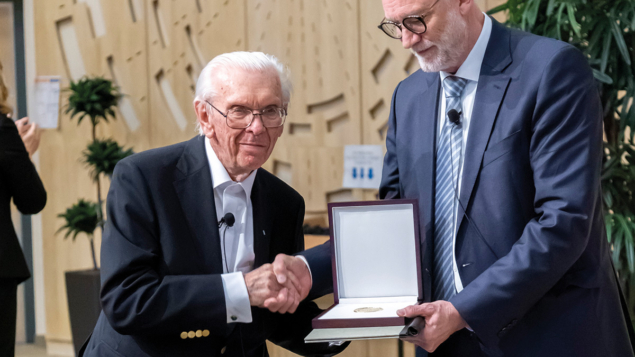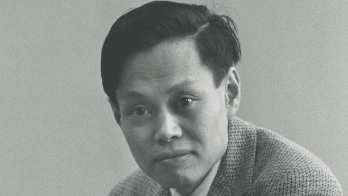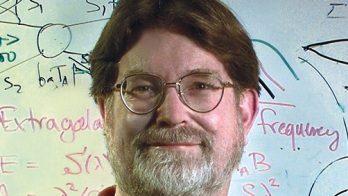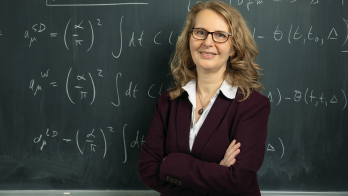
Since his birth in Bohemia in 1924, Herwig Schopper has been a prisoner of war, an experimentalist with pioneering contributions in nuclear, accelerator and detector physics, director general (DG) of DESY and then CERN during a golden age for particle physics, and a celebrated science diplomat. Shortly after his centenary, his colleagues, family and friends gathered on 1 March to celebrate the life of the first DG in either institution to reach 100.
“He is a restless person,” noted Albrecht Wagner (DESY), who presented a whistlestop tour of Schopper’s 35 years working in Germany, following his childhood in Bohemia. Whether in Hamburg, Erlangen, Mainz or Karlsruhe, he never missed out on an opportunity to see new places – though always maintaining the Austrian diet to which his children attribute his longevity. On one occasion, Schopper took a sabbatical to work with Lise Meitner in Stockholm’s Royal Institute of Technology. At the time, the great physicist was performing the first nuclear-physics studies in the keV range, said Wagner, and directed Schopper to measure the absorption rate of beta-decay electrons in various materials using radioactive sources and a Geiger–Müller counter. Schopper is one of the last surviving physicists to have worked with her, observed Wagner.
Schopper’s scientific contributions have included playing a major part in the world’s first polarised proton source, Europe’s first R&D programme for superconducting accelerators and the development of hadronic calorimeters as precision instruments, explained Christian Fabjan (TU Vienna/HEPHY). Schopper dubbed the latter the sampling total absorption calorimeter, or STAC, playing on the detector’s stacked design, but the name didn’t stick. In recognition of his contributions, hadronic calorimeters might now be renamed Schopper total absorption calorimeters, joked Fabjan.
As CERN DG from 1981 to 1988, Schopper oversaw the lion’s share of the construction of the LEP, before it began operations in July 1989. To accomplish this, he didn’t shy away from risks, budget cuts or unpopular opinions when the situation called for it, said Chris Llewellyn Smith, who would himself serve as DG from 1994 to 1998. Llewelyn Smith credited Schopper with making decisions that would benefit not only LEP, but also the LHC. “Watching Herwig deal with these reviews was a wonderful apprenticeship, during which I learned a lot about the management of CERN,” he recalled.
After passing CERN’s leadership to Carlo Rubbia, Schopper became a fulltime science diplomat, notably including 20 years in senior roles at UNESCO between 1997 and 2017, and significant contributions to SESAME, the Synchrotron-light for Experimental Science and Applications in the Middle East (see CERN Courier January/February 2023, p28). Khaled Toukan of Jordan’s Atomic Energy Commission, CERN Council president Eliezer Rabinovici and Maciej Nałecz (Polish Academy of Science, formerly of UNESCO) all spoke of Schopper’s skill in helping to develop SESAME as a blueprint for science for peace and development. “Herwig likes building rings,” Toukan fondly recounted.
As with any good birthday party, Herwig received gifts: a first copy of his biography, a NASA hoodie emblazoned with “Failure is not an option” from Sam Ting (MIT), who is closely associated with Schopper since their time together at DESY, and the Heisenberg medal. “You’ve even been in contact with the man himself,” noted Heisenberg Society president Johannes Blümer, referring to several occasions Schopper met Heisenberg at conferences and even once discussed politics with him.
Schopper continues to counsel DGs to this day – and not only on physics. Confessing to occasionally being intimidated by his lifetime of achievements, CERN DG Fabiola Gianotti intimated that they often discuss music. “Herwig likes all composers, but not baroque ones. For him, they are too rational and intellectual.” For this, he will always have physics.







